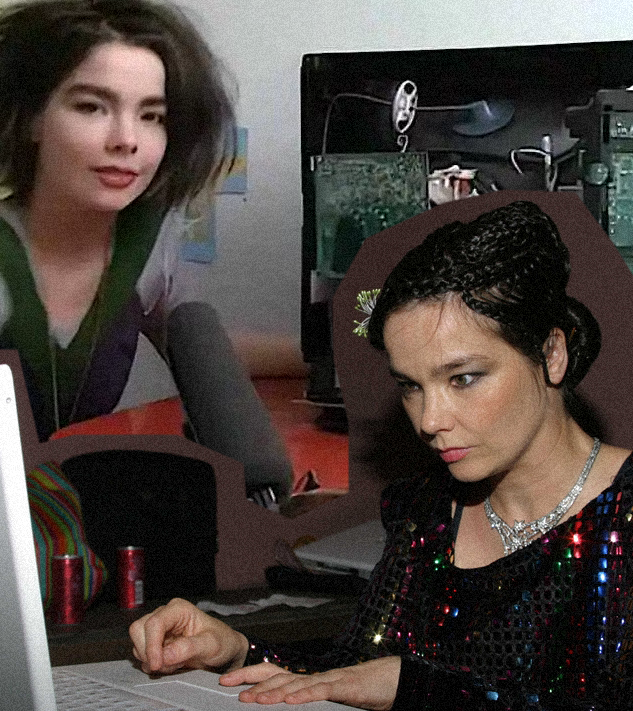Entering the Post-Brand Era: Anonymous Posting is the Ideal Way to Explore Identity
Make it stand out
“Nobody ever had or was a self. Selves are not part of reality.” This idea is the basis of German philosopher Thomas Metzinger’s work. Whether it exists or not, a lot of time is spent crafting the self online, in particular on our social platforms - not only for others, but for our own satisfaction too. We’ve reached a point of malaise. How many times have you queued up a story, only to save it? Is it representational of where you’re at? Is it cool? Save as draft.
The draft story feature is new, and it exists for a reason. Meta is onto us; we’re tired of feeding the algorithm, but we’re still hanging around. Many users on the Instagram platform are stymying how much they post. Stories are losing their appeal, and hard posting almost never happens. We are lurking.
Kaitlyn Tiffany declared last year that The Personal Brand is Dead. The millennial invention of the perfectly curated feed and the days of dutifully filling in our audience on our movements while identifying with the sum of our actions is out. Anonymity is in.
Matilda Berke writes in Spike Magazine that our identity comes down to an idea of ‘form’. Form implies there is an ideal concept, “I was a punk. I did ballet. I was a VSCO girl, coquette, anarcho-communist, loser Joan Didion.” Berke recalls the archive of personas she stacked up on the internet. With each evolution, she starts again, because online we can build a self in any image and that becomes our identity - so long as nothing we do contradicts the form chosen.
___STEADY_PAYWALL___
I’m reminded of Enid in Terry Zwigoff’s Ghost World. based on Daniel Clowes 1997 comic. Enid is exploring her likes and taste through music, relationships and cultural ephemera. Identity is the game, with a hopeful invitation to community the end goal. This exploration doesn’t end after adolescence: Our identity is an equation we’re constantly trying to balance. It’s not 90s anymore though, and while there was only one loser at a record store who made a snide remark about Enid’s new ’77 punk rock look, in 2023 we have a whole following to explain our authenticity to.
The pressure to encapsulate who we are on social platforms that archive our past lives, failed attempts and mistakes included, is a lot. We laugh as we share a cringe TBT. An embarrassing Timehop. A responsibility to remain true to our feed ties back to what Berke terms as “a collective obsession with self-definition and self-presentation.”
“The pressure to encapsulate who we are on social platforms that archive our past lives, failed attempts and mistakes included, is a lot.”
The access to so much information has paraded itself under the misnomer of transparency. We were groomed to believe that being authentic was the best way to approach social content. Who can forget Facebook and its real name policy? We all tried to play along oversharing and posting earnest platitudes, but it was a boon for Big Tech. The idea that we are working for free with each action taken online is not novel, but beyond our data being mined and sold, the implications for us and our personal growth are far more insidious.
While many have posited that the best response to this is to go offline, deactivate social accounts and sit the round out, there are reasons for us feeling compelled to engage. We are caught, somewhere between convenience and connection. Besides, even with zero social media accounts to your name Facebook still has a profile of you.
So what do we do? Tiffany posits that we’re in an era of obfuscation, Gen Z are leading the way with accepting that identity is fluid and the archives of who we were may be better left in a bygone era of the internet. Instead, Gen Z - and in turn, everyone else - are turning to niche communities to explore their interests and connect with like-minded people. Exactly how the Internet was intended to be used.
The sense of connection still plays a role in how people are engaging socially online. Trends like web weaving, yearnposting and gradient accounts are all examples of content posted from anonymous social accounts that have huge followings. Their anonymity works both ways; permitting the freedom to post, test and play for the account holder, while allowing the audience to connect to familiarity and relatability of the content over someone’s identity or persona.
Discord has over 150 million users interacting in private or closed groups often anonymously - the only known is what bonds them together - their interests or membership to a particular group. Similarly, the resurgence of Tumblr, the OG platform, has no issue with users remaining anonymous and therefore facilitates the safe exploration of identity - probably why it was embraced by outsider and queer culture in the first place. Enid would have loved Tumblr.
There is a reason for this renaissance of anonymity. It is our nature to change, it is normal, it’s necessary; but change usually requires incubation and privacy. Nothing was working for Enid in her small town in Ghost World, so she packed her bags and caught a bus out. Some things just need to be done solo.
Words: Kat Gabrielle


